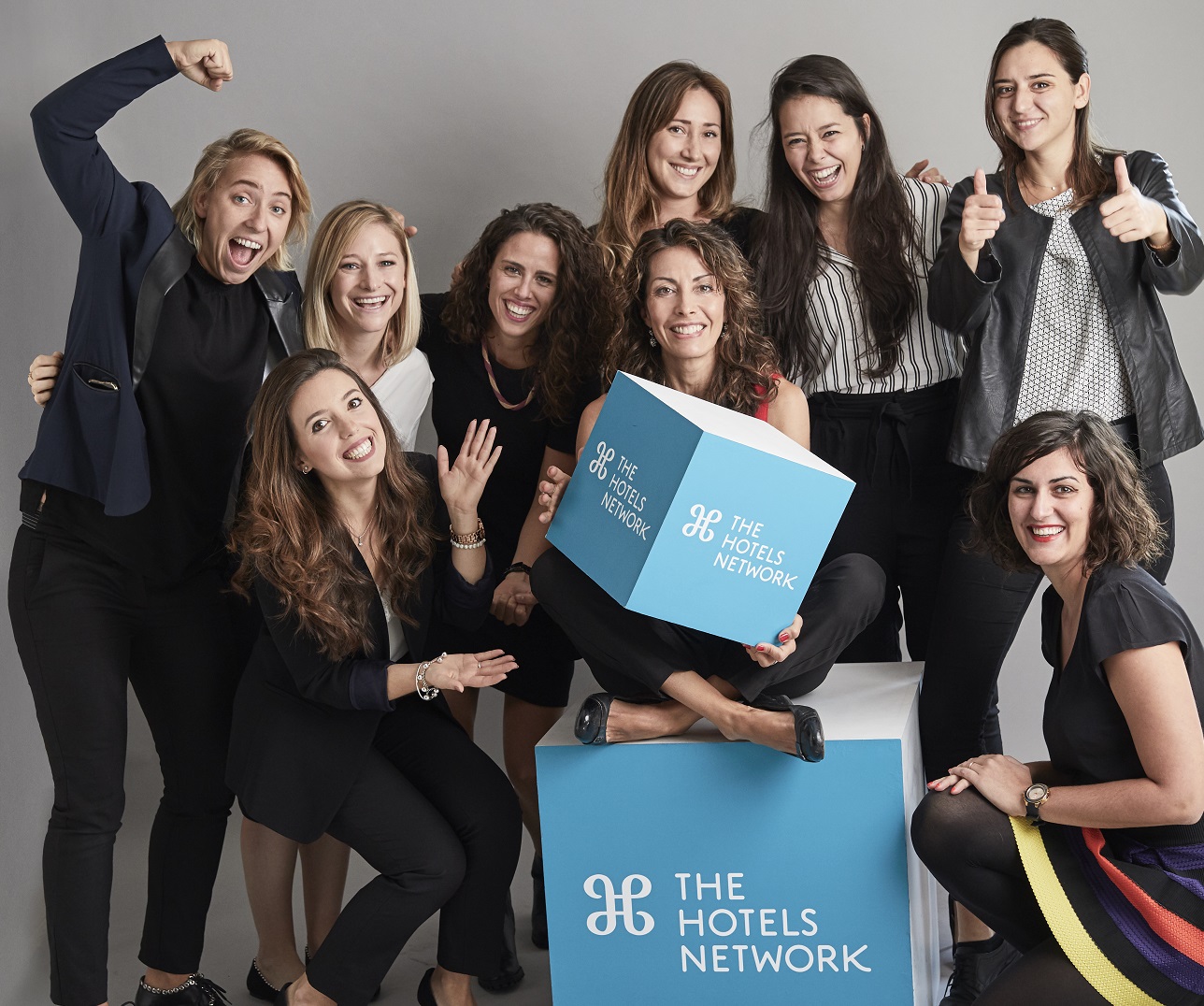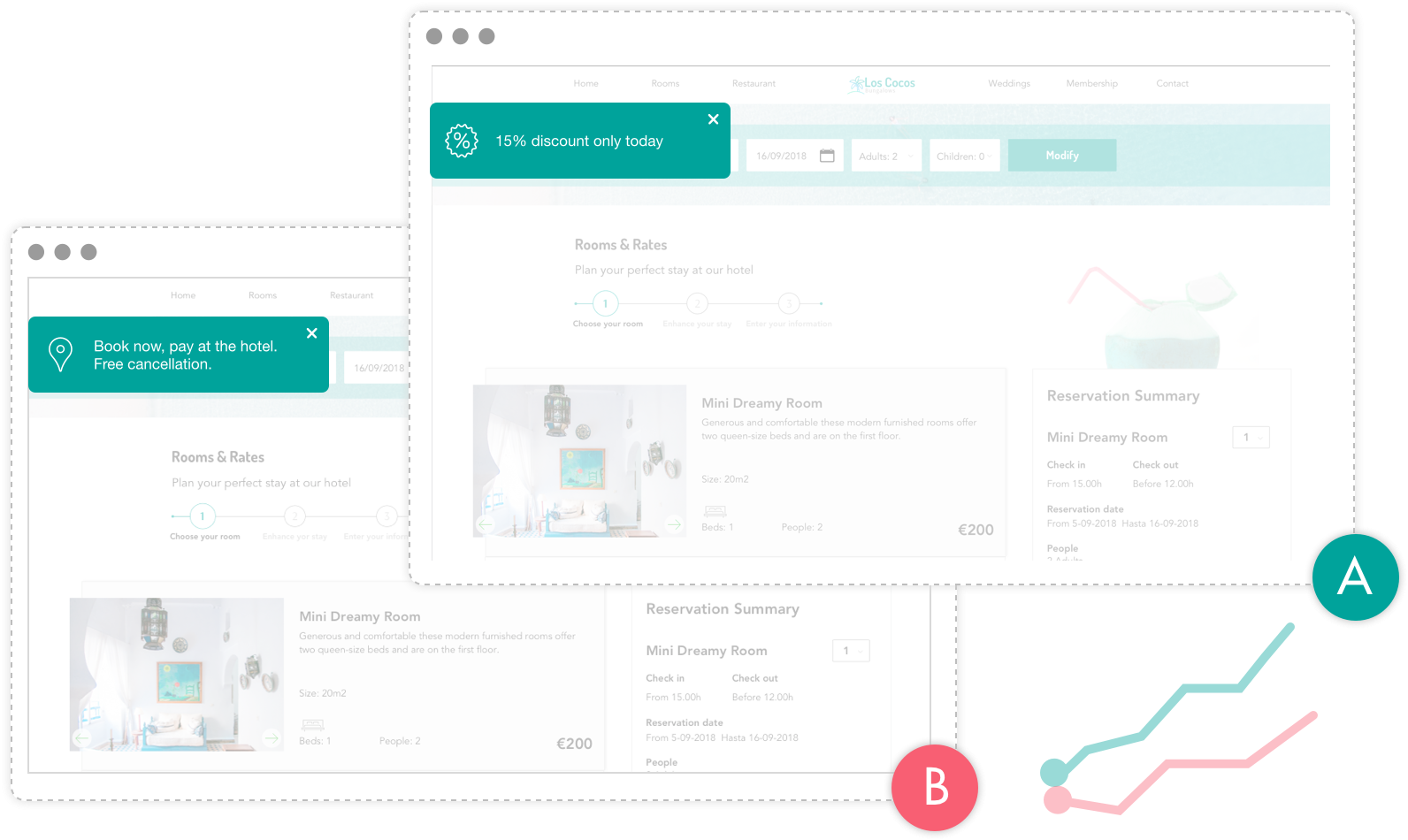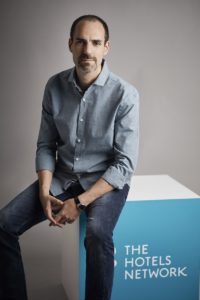
For this week's podcast, I spoke to Juanjo Rodriguez, the CEO of The Hotels Network, a company delivering a hotel tech ecosystem that increases direct channel conversions.
The company grew from five to 50 in three and a half years, with a core tech team in Barcelona and a second office in San Francisco, plus people on the ground in Bangkok, Singapore, Mumbai, Mexico, Montevideo, Bogota. He and I discussed building a company, from just an idea:
The following is an abridged version of that conversation. Rodriguez speaks:
When you are an entrepreneur looking for an interesting project to work on, the impulse is to work on consumer problems but there are a million opportunities in B2B even though they are harder to discover.
When we started exploring ideas, it became clear that the most interesting space was accommodation. We started thinking about this was when Airbnb was starting out, so there had not been very much innovation in the industry and it was clear there was an opportunity.
We built some technology to help people plan their trips and we found that it was much more interesting to offer this technology to hotels instead. The market is really fragmented so none of the hotels or brands are large enough to have the same level of technology or marketing expertise as the OTAs who have huge teams and resources.
The Hotels Network products
It's tough to compete for a booking - even if the user really wants to stay at the hotel - so we try to reduce friction in the booking process.
The concept is that a user visits 38 travel sites before booking and that happens because there are many sources of information; the user is never sure if they are making the right decision. We wanted to preempt that by providing the information that the user needs about their whole trip on the hotel website.
We also looked at the booking funnel, and every step the user has to take when booking a room. We pull information about the review scores that the hotel is getting and we send that in a very easy-to-read format to the website. Once you decide on the hotel, you check prices - we help compare prices directly so we compare with the OTAs and meta search. As a user, you are sure you are going to get the best deal.
Then we help personalise the experience. The key insight we found when we were working in the B2C space is that travellers are extremely specific on what they want - and not just on the destination they want to travel to.
"Personalisation is paramount"
I am friends with two brothers - they are twins so in every traditional social demographic they are the same. One wants to take a trip to Rome and one wants to go to Bangkok - and there is no way on earth to discover that until they say so on the website. Each one will have a million super-specific requirements about their stay. Personalisation is paramount.
Our tools change the booking experience depending on what you are doing - not who you are; it's behaviour-based. We don't care about your email or your name and we just want to understand what you are doing, so we can take the best potential offer from the hotel and showcase it in a way that is really attractive.
The Hotels Network reviews platform
We have two levels for our review tool. First, a score gives you a quick understanding - patience is not one of our greatest qualities as human beings! We can give you something very quick to check a weighted average across all reviews, then you can go deeper into each review.
"Reviews that tell the story of the hotel in the words of the user"
The idea is not to present the best review - that would sound false. The best approach is to get reviews that tell the story of the hotel in the words of the user. Mine the reviews for those that understood what you are about. Even if they just say 'I loved it!', this gives no information.
I think it's better to be different than good, and in a market where there are hundreds, if not thousands, of other hotels that could be as good as yours, you have to be different. If you are another nondescript branded hotel they [the consumers] will not even remember your name.

Price comparison
We compare against 20 different OTAs including all the major ones like Expedia, and not just the international ones but top local ones, for example Traveloka in Southeast Asia.
We provide a personalisation system that has two components: first, targeting (who sees the campaign) then the look and feel. We've seen many different variables for the behaviour of users: the hotel, the dates, how many people are in your party, how likely you are to come back. By tracking their experience on the website, we can help the hotel deliver messages to you that are relevant to what they are doing.
For the hotel marketer it is very difficult to update the website regularly; it is time consuming and they cannot do it [separately] for every user. Through our system, they can do it in three minutes and create different campaigns for different people.

You can create a campaign to only display, say, on Friday evenings for people from neighbouring countries to you; or as specific as 'Chinese people looking for a holiday in Singapore will get a 5% extra discount for their CNY holiday travel'.
You can create an unlimited number of promotions or perks; say for example your clients want to rent a car. If they book for three nights they receive a car rental discount.
"Relevant - to your behaviour not your name or your email"
Our tool delivers a message in a way that is relevant and impactful to anyone visiting the website - without overloading them. You could have 20 messages but if you display them all at the same time they will be lost.
We serve only one that is relevant - to your behaviour not your name or your email, although hotels can also link our product to their CRM and loyalty programme so all the things that the hoteliers knows about you can be used for targeting.
Anything that you can think of can be transformed into a trigger for whatever messaging you want to deliver, anywhere across the funnel.

For example you can welcome people that came specifically from TripAdvisor or clicked on a discount they saw in AdWords.
The death of the traditional 'persona'
You are also not the same person all the time; sometimes you travel with your family or on your own for business so a person may have a very different profile.
What you did six months ago is the worst predictor of what you are doing today.
One of the things I learnt while working in marketing is that the traditional approach of social demographic - for example, 'women aged 30 to 35 love yoga' - is stupid! In the hotel industry there is an additional level of complexity and if you are a small independent hotel you don't have the critical mass of data to create a CRM database in the first place.
Let's say you have a chain of six resorts in Southeast Asia. If I take a trip to Phuket the chance that I will take another trip to Phuket is smaller because I want to try another destination; maybe I don't come back for 10 years even if I loved it.
For example I had my honeymoon in Australia and I loved everything about it but I have never been back in 10 years because it's too damn far away!
"90% of people will never come back to your hotel"
The average number of trips per person is two per year and it's never to the same destination. 90% of people will never come back to your hotel. If you look at the industry average at any hotel on any given day, 90% of people are there for the first time. The only time you see real repeated business is for business trips.
Trying to capture repeat business is a very risky strategy long-term because you might become dependent on your distributors; if Expedia changes their commission structure if you have to pay a new fee. One of the key strategic reasons to develop a really well thought-out and productive direct channel is to be able to de-risk your future and the evolution of the market. Depending on your distributors means they will have all the power and you cannot allow that to happen.
The future
It is hard to predict what someone is doing today from what they have done before, unless you have seen millions of similar people before. We use machine learning and 'predictive personalisations' to predict what users will be doing.
We can work with every independent hotel and every [chain] brand and so we can collect feedback from across the world. We can gather one client from Paris, one from Bangkok and one from LA with different local environments, and we can interact with these people on their terms and in their languages as we have 18 nationalities across 50 staff. Indeed [when hiring], the first thing we look at is a person's languages; the average number of languages of our staff is three.
We are in a very fun industry: we spend so much time looking at hotels that we become homesick for travel! The industry is doing well and so you can build a sustainable business, but the space is ready for innovation. We have a lot of ideas for what we can build and there are many more things that we'll be bringing to the market in the next few years.




















